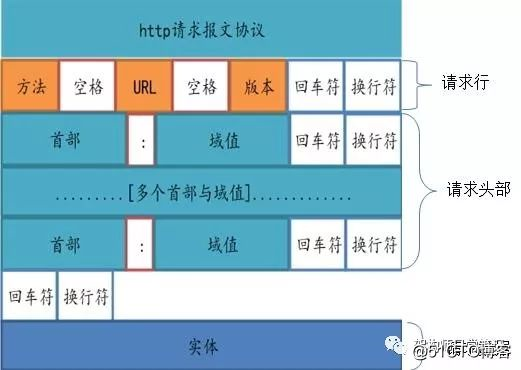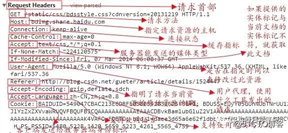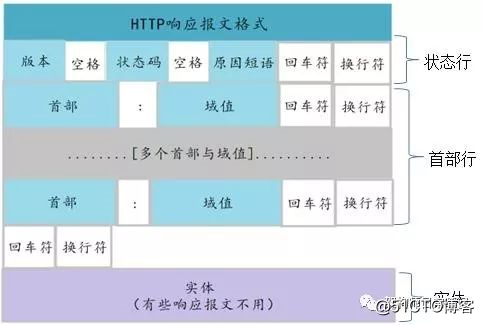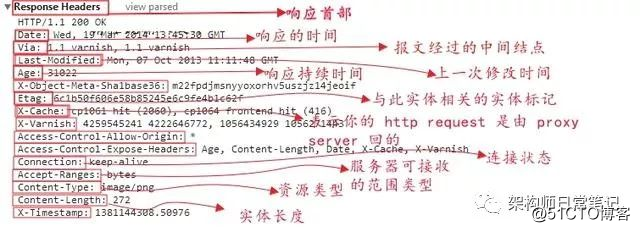标签:tor 判断 odi reac option final min 格式 内容
Jodd 是一个开源的 Java 工具集, 包含一些实用的工具类和小型框架。简单,却很强大!jodd-http是一个轻巧的HTTP客户端。现在我们以一个简单的示例从源码层看看是如何实现的?
HttpRequest httpRequest = HttpRequest.get("http://jodd.org"); //1. 构建一个get请求
HttpResponse response = httpRequest.send(); //2.发送请求并接受响应信息
System.out.println(response);//3.打印响应信息先复习一下http请求报文的格式:

下图展示一般请求所带有的属性

调用get方法构建http请求:
/**
* Builds a GET request.
*/
public static HttpRequest get(String destination) {
return new HttpRequest()
.method("GET")
.set(destination);
}method方法如下:
/**
* Specifies request method. It will be converted into uppercase.
*/
public HttpRequest method(String method) {
this.method = method.toUpperCase();
return this;
}set方法如下:
/**
* Sets the destination (method, host, port... ) at once.
*/
public HttpRequest set(String destination) {
destination = destination.trim();
// http method
int ndx = destination.indexOf(‘ ‘);
if (ndx != -1) {
method = destination.substring(0, ndx).toUpperCase();
destination = destination.substring(ndx + 1);
}
// protocol
ndx = destination.indexOf("://");
if (ndx != -1) {
protocol = destination.substring(0, ndx);
destination = destination.substring(ndx + 3);
}
// host
ndx = destination.indexOf(‘/‘);
if (ndx == -1) {
ndx = destination.length();
}
if (ndx != 0) {
host = destination.substring(0, ndx);
destination = destination.substring(ndx);
// port
ndx = host.indexOf(‘:‘);
if (ndx == -1) {
port = DEFAULT_PORT;
} else {
port = Integer.parseInt(host.substring(ndx + 1));
host = host.substring(0, ndx);
}
}
// path + query
path(destination);
return this;
}上述方法,根据destination解析出一下几个部分:
方法:HTTP1.1支持7种请求方法:GET、POST、HEAD、OPTIONS、PUT、DELETE和TARCE。
协议:http或者https
主机:请求的服务器地址
端口:请求的服务器端口
/**
* Sets request path. Query string is allowed.
* Adds a slash if path doesn‘t start with one.
* Query will be stripped out from the path.
* Previous query is discarded.
* @see #query()
*/
public HttpRequest path(String path) {
// this must be the only place that sets the path
if (path.startsWith(StringPool.SLASH) == false) {
path = StringPool.SLASH + path;
}
int ndx = path.indexOf(‘?‘);
if (ndx != -1) {
String queryString = path.substring(ndx + 1);
path = path.substring(0, ndx);
query = HttpUtil.parseQuery(queryString, true);
} else {
query = HttpValuesMap.ofObjects();
}
this.path = path;
return this;
}先熟悉一下http响应报文的格式:
先熟悉一下http响应报文的格式:
响应首部一般包含如下内容:

/**
* {@link #open() Opens connection} if not already open, sends request,
* reads response and closes the request. If keep-alive mode is enabled
* connection will not be closed.
*/
public HttpResponse send() {
if (httpConnection == null) {
open();
}
// prepare http connection
if (timeout != -1) {
httpConnection.setTimeout(timeout);
}
// sends data
HttpResponse httpResponse;
try {
OutputStream outputStream = httpConnection.getOutputStream();
sendTo(outputStream);
InputStream inputStream = httpConnection.getInputStream();
httpResponse = HttpResponse.readFrom(inputStream);
httpResponse.assignHttpRequest(this);
} catch (IOException ioex) {
throw new HttpException(ioex);
}
boolean keepAlive = httpResponse.isConnectionPersistent();
if (keepAlive == false) {
// closes connection if keep alive is false, or if counter reached 0
httpConnection.close();
httpConnection = null;
}
return httpResponse;
}
/**
* Opens a new {@link HttpConnection connection} using
* {@link JoddHttp#httpConnectionProvider default connection provider}.
*/
public HttpRequest open() {
return open(JoddHttp.httpConnectionProvider);
}
/**
* Opens a new {@link jodd.http.HttpConnection connection}
* using given {@link jodd.http.HttpConnectionProvider}.
*/
public HttpRequest open(HttpConnectionProvider httpConnectionProvider) {
if (this.httpConnection != null) {
throw new HttpException("Connection already opened");
}
try {
this.httpConnectionProvider = httpConnectionProvider;
this.httpConnection = httpConnectionProvider.createHttpConnection(this);
} catch (IOException ioex) {
throw new HttpException(ioex);
}
return this;
}判断是否有连接,若没有连接则创建一个新的连接。
/**
* Creates new connection from current {@link jodd.http.HttpRequest request}.
*
* @see #createSocket(String, int)
*/
public HttpConnection createHttpConnection(HttpRequest httpRequest) throws IOException {
Socket socket;
if (httpRequest.protocol().equalsIgnoreCase("https")) {
SSLSocket sslSocket = createSSLSocket(httpRequest.host(), httpRequest.port());
sslSocket.startHandshake();
socket = sslSocket;
} else {
socket = createSocket(httpRequest.host(), httpRequest.port());
}
return new SocketHttpConnection(socket);
}根据协议的不同,http使用SocketFactory创建socket,https使用SSLSocketFactory创建SSLSocket。最终使用SocketHttpConnection进行包装。
SocketHttpConnection继承自HttpConnection,实现了socket的输入输出流连接。注意:https创建完SSLSocket时需要进行握手。
public class SocketHttpConnection implements HttpConnection {
protected final Socket socket;
public SocketHttpConnection(Socket socket) {
this.socket = socket;
}
public OutputStream getOutputStream() throws IOException {
return socket.getOutputStream();
}
public InputStream getInputStream() throws IOException {
return socket.getInputStream();
}
public void close() {
try {
socket.close();
} catch (IOException ignore) {
}
}
public void setTimeout(int milliseconds) {
try {
socket.setSoTimeout(milliseconds);
} catch (SocketException sex) {
throw new HttpException(sex);
}
}
/**
* Returns <code>Socket</code> used by this connection.
*/
public Socket getSocket() {
return socket;
}
}打开Connection的输出流发送信息,打开connection的输入流接受返回信息。
OutputStream outputStream = httpConnection.getOutputStream();
sendTo(outputStream);
InputStream inputStream = httpConnection.getInputStream();发送过程:
protected HttpProgressListener httpProgressListener;
/**
* Sends request or response to output stream.
*/
public void sendTo(OutputStream out) throws IOException {
Buffer buffer = buffer(true);
if (httpProgressListener == null) {
buffer.writeTo(out);
}
else {
buffer.writeTo(out, httpProgressListener);
}
out.flush();
}将缓冲区的数据写入输出流,并发送。
接受数据并读取报文内容:
/**
* Reads response input stream and returns {@link HttpResponse response}.
* Supports both streamed and chunked response.
*/
public static HttpResponse readFrom(InputStream in) {
InputStreamReader inputStreamReader;
try {
inputStreamReader = new InputStreamReader(in, StringPool.ISO_8859_1);
} catch (UnsupportedEncodingException ignore) {
return null;
}
BufferedReader reader = new BufferedReader(inputStreamReader);
HttpResponse httpResponse = new HttpResponse();
// the first line
String line;
try {
line = reader.readLine();
} catch (IOException ioex) {
throw new HttpException(ioex);
}
if (line != null) {
line = line.trim();
int ndx = line.indexOf(‘ ‘);
httpResponse.httpVersion(line.substring(0, ndx));
int ndx2 = line.indexOf(‘ ‘, ndx + 1);
if (ndx2 == -1) {
ndx2 = line.length();
}
httpResponse.statusCode(Integer.parseInt(line.substring(ndx, ndx2).trim()));
httpResponse.statusPhrase(line.substring(ndx2).trim());
}
httpResponse.readHeaders(reader);
httpResponse.readBody(reader);
return httpResponse;
}小结
从上面的代码,我们可以看出http使用socket来建立和destination的连接,然后通过连接的输出流和输入流来进行通信。
参考文献:
【1】http://www.it165.net/admin/html/201403/2541.html
【2】http://jodd.org/doc/http.html
标签:tor 判断 odi reac option final min 格式 内容
原文地址:https://blog.51cto.com/15015181/2556403